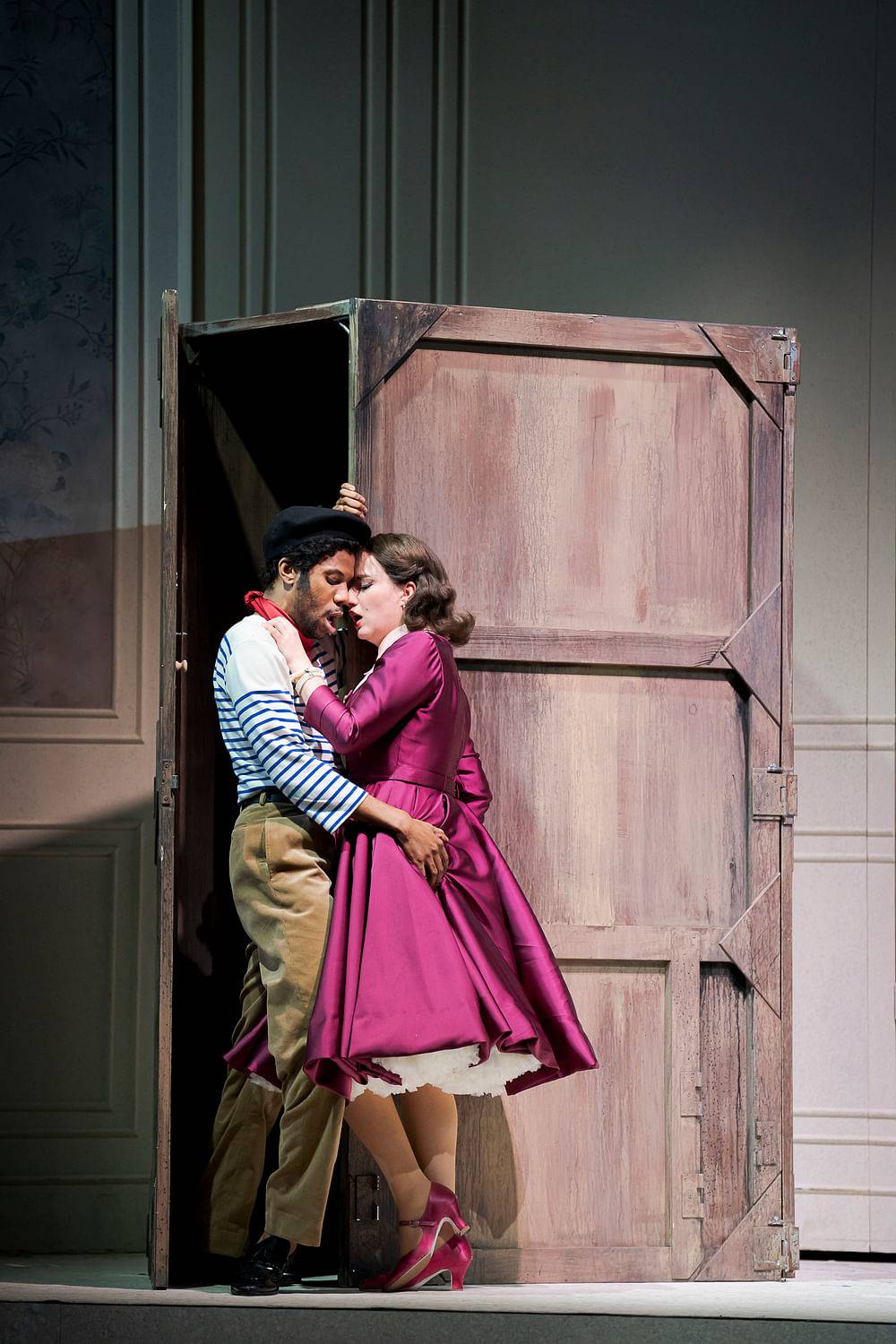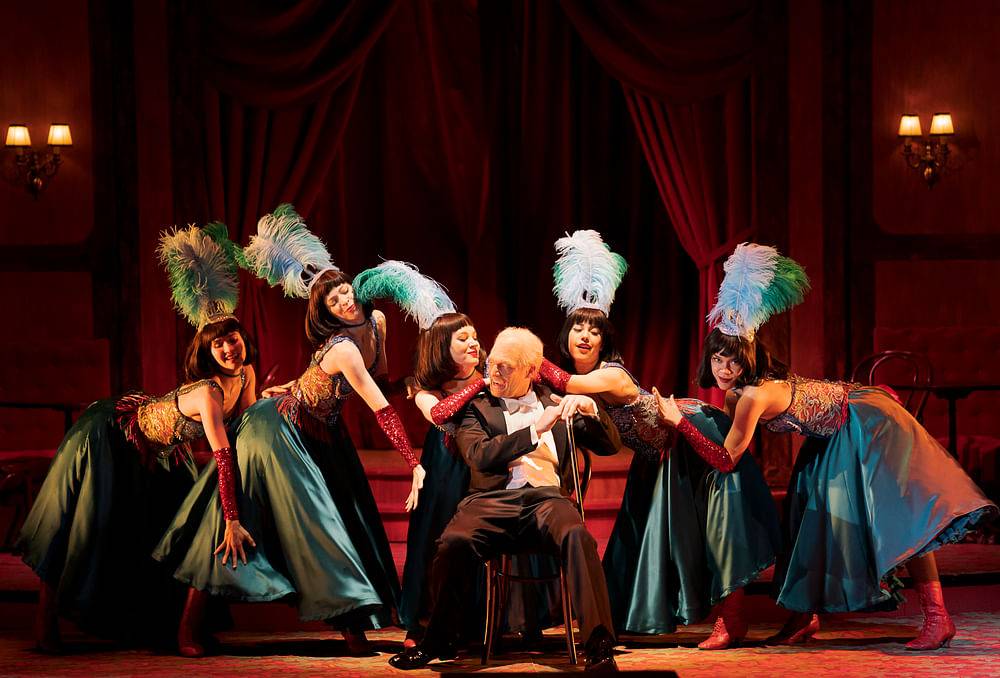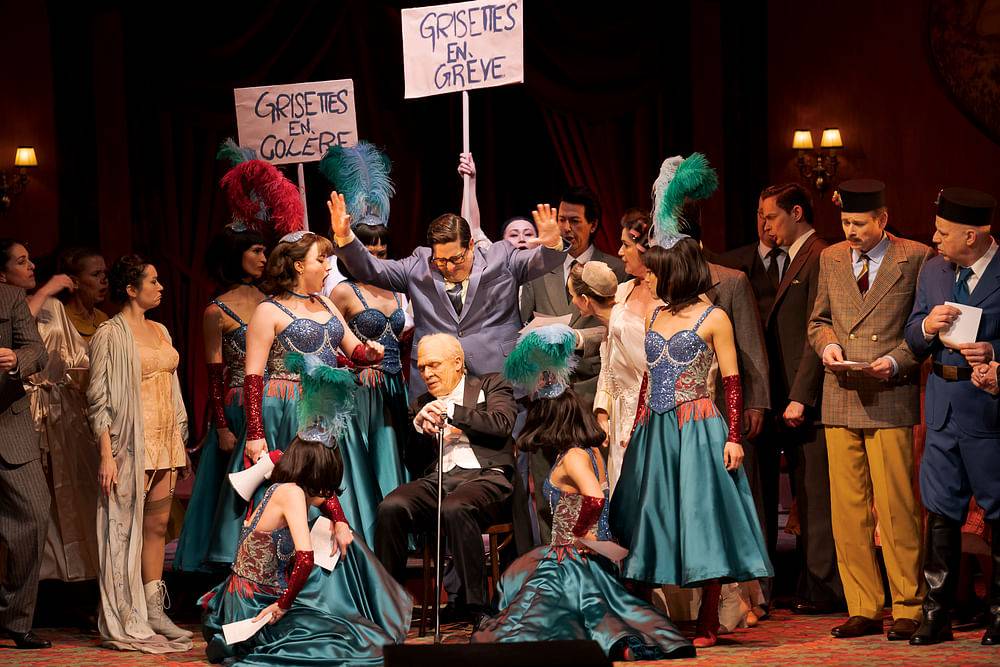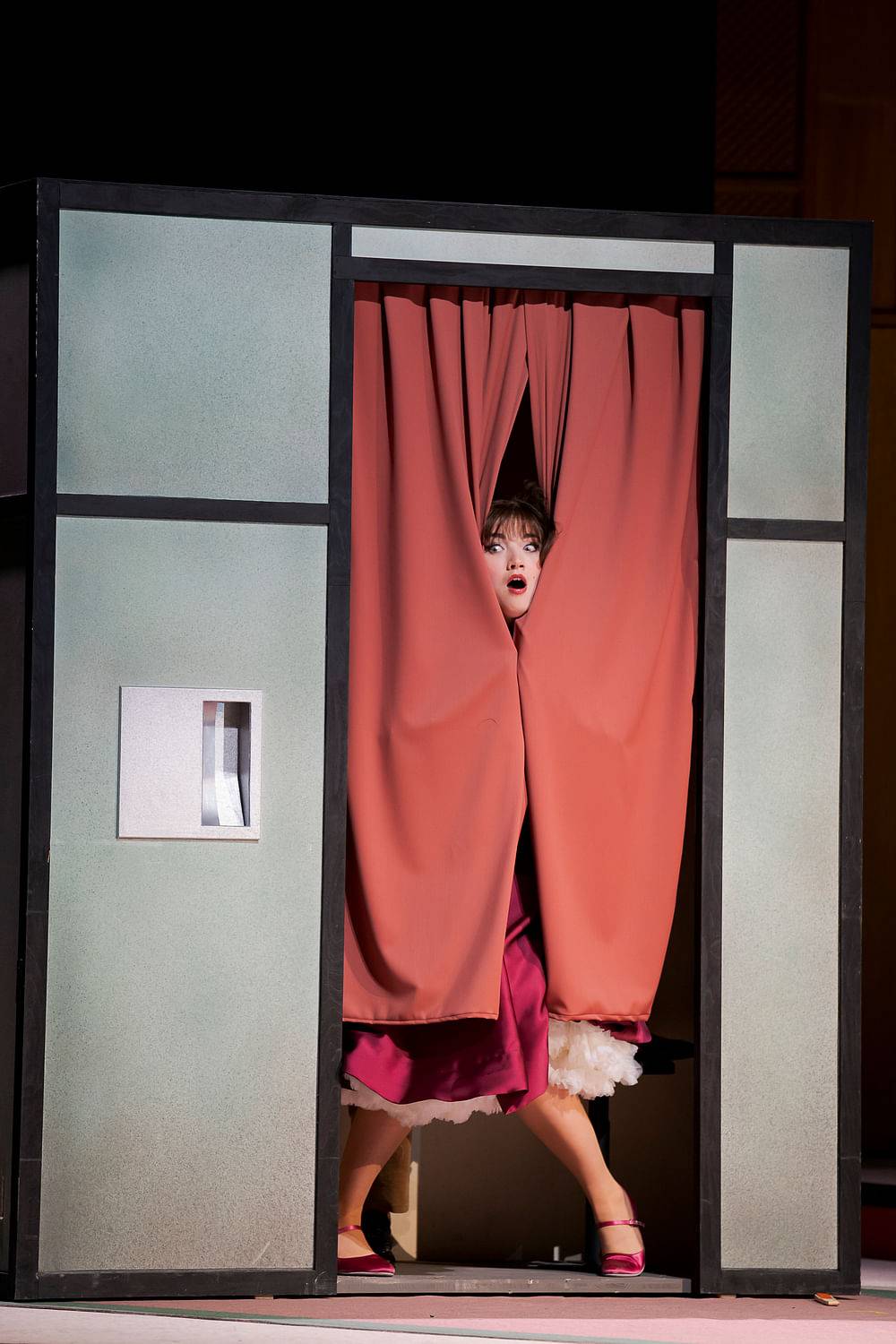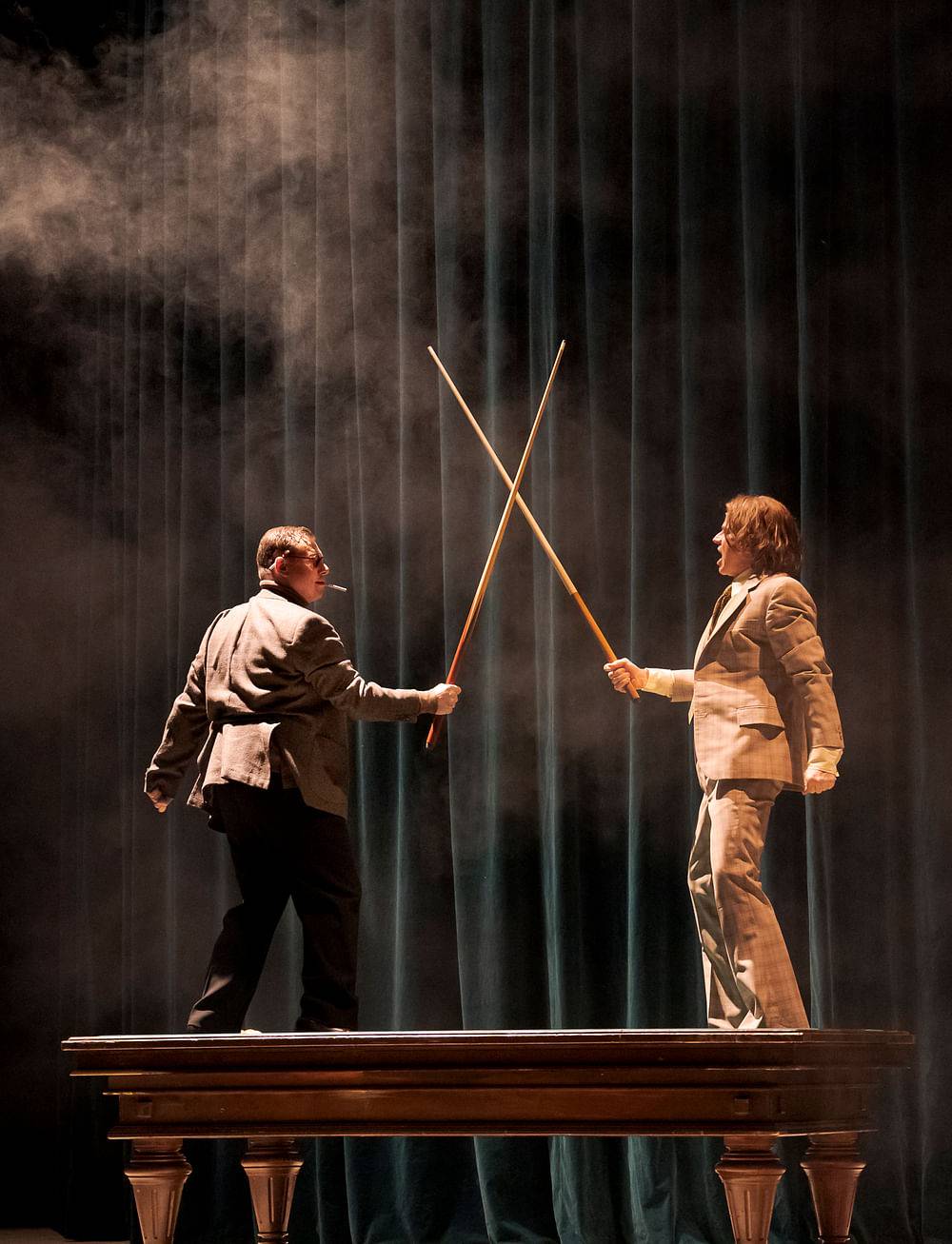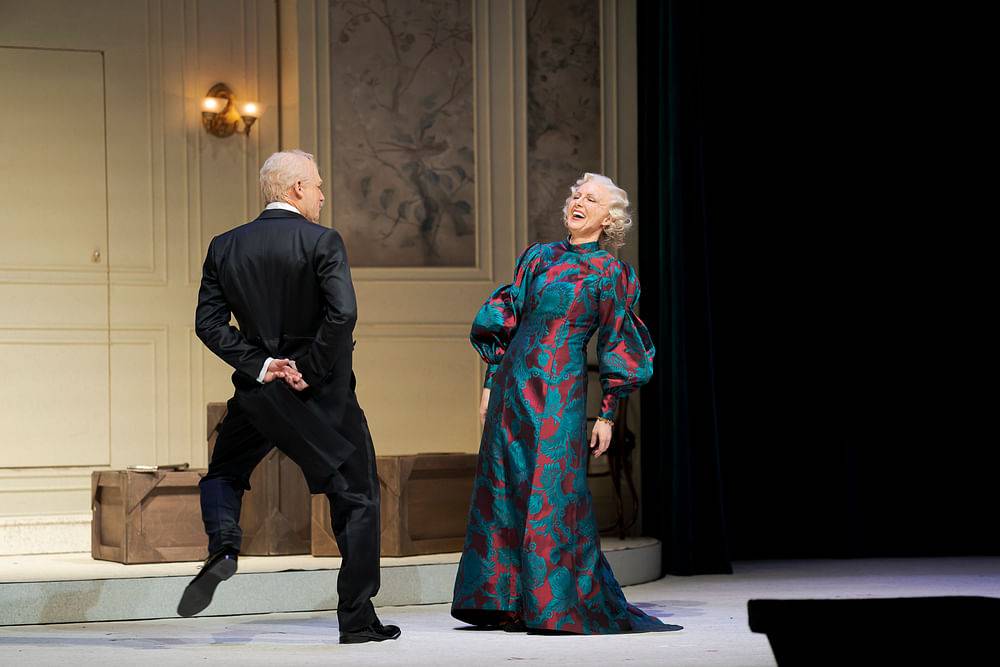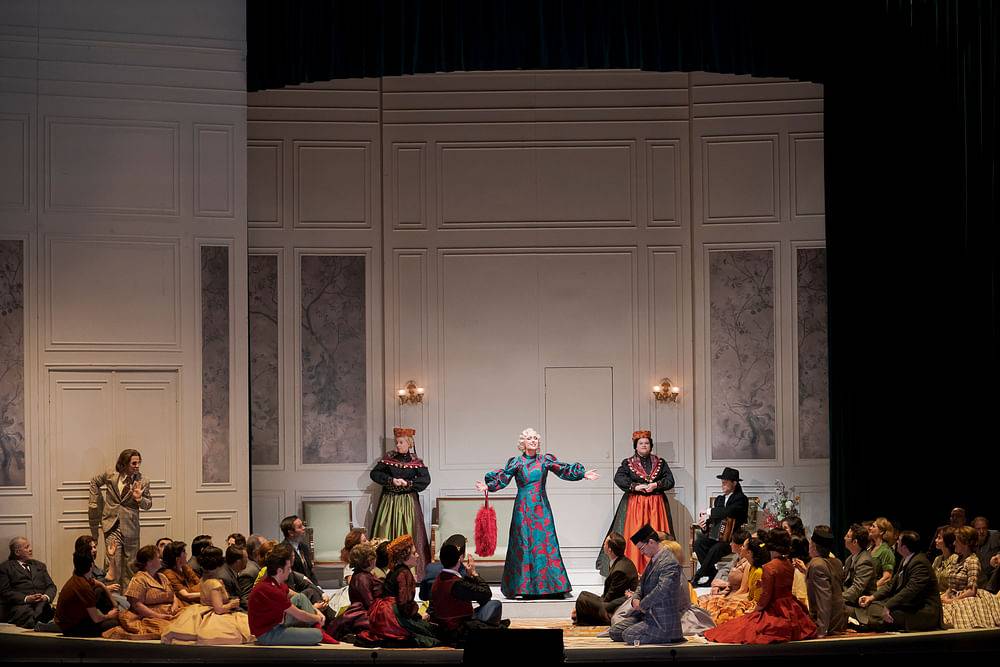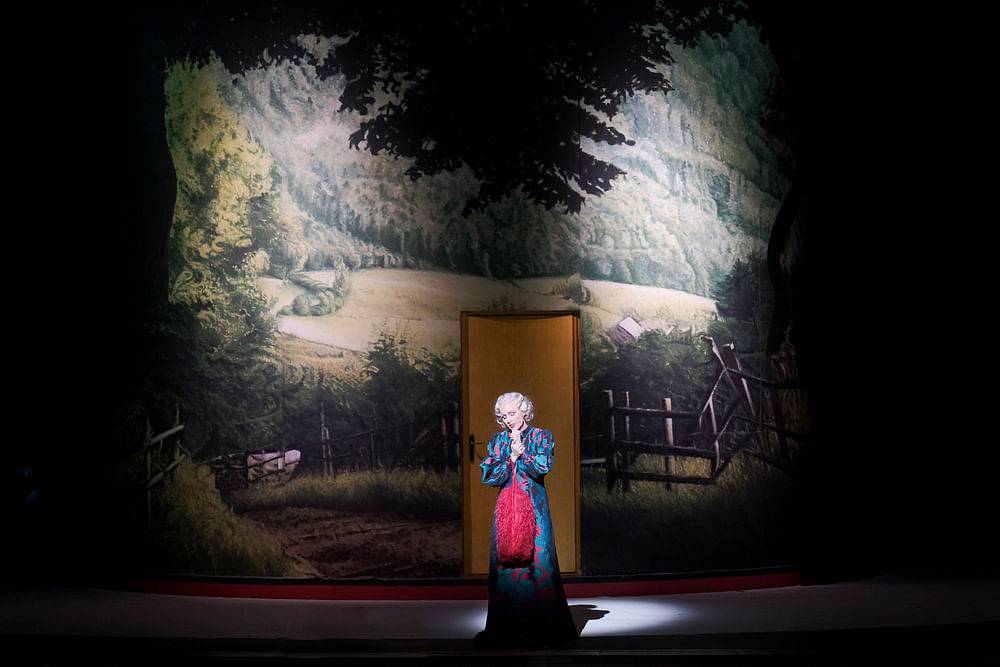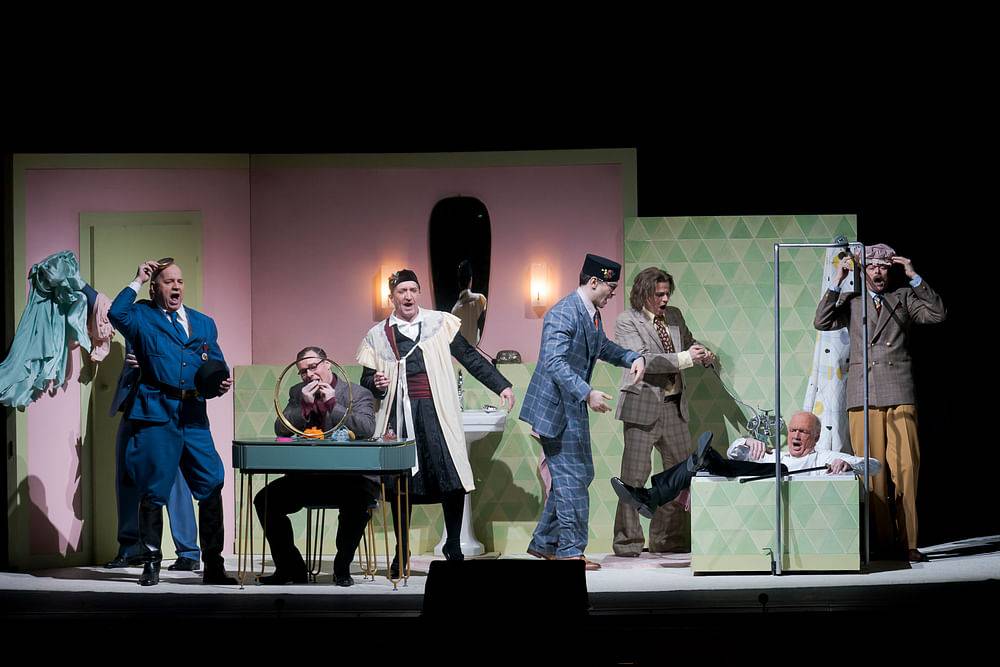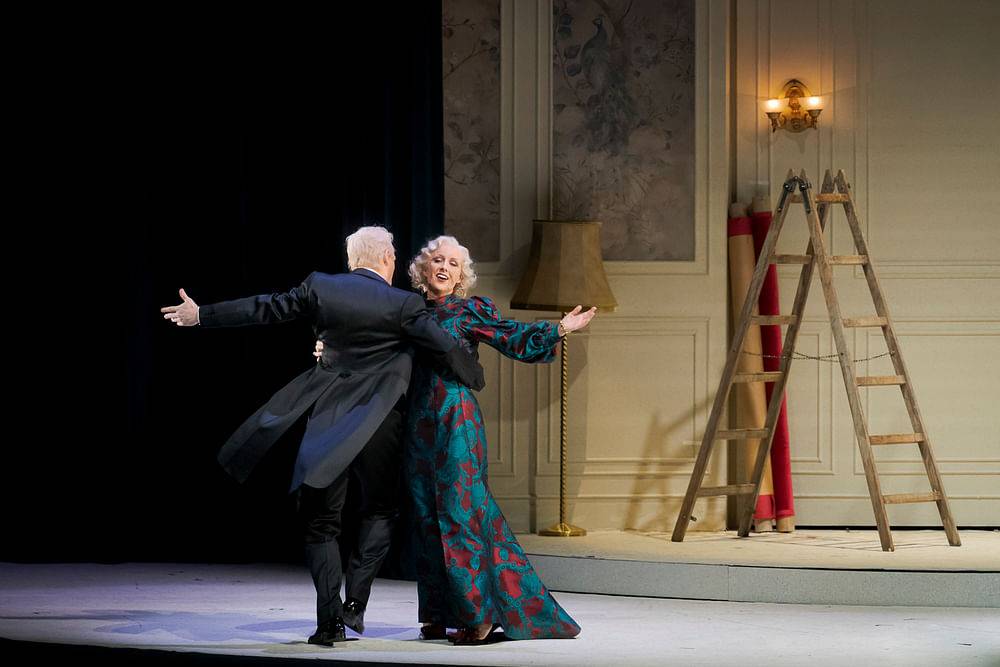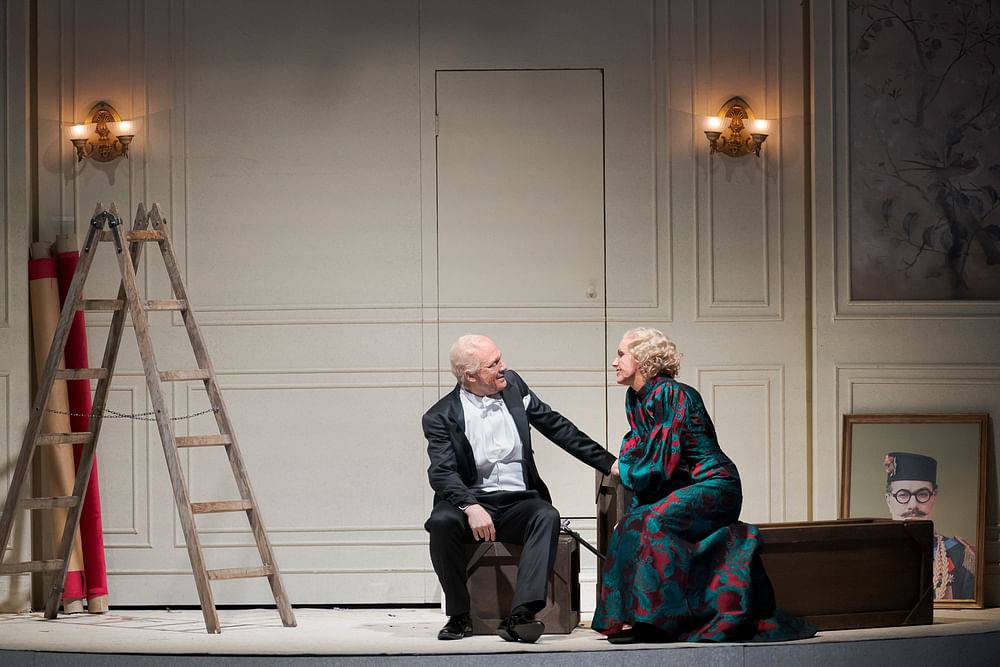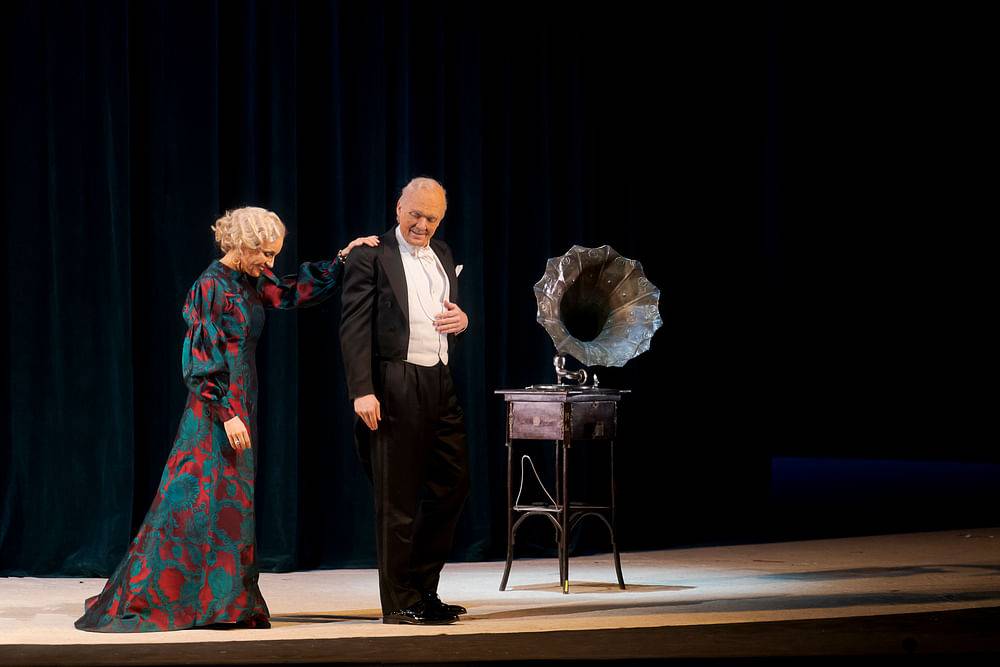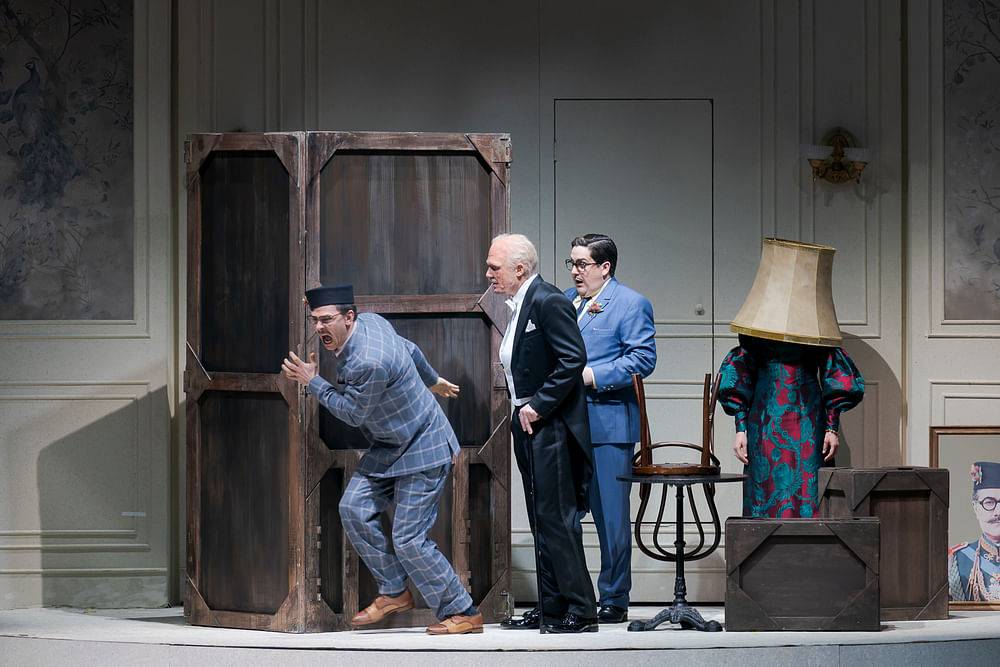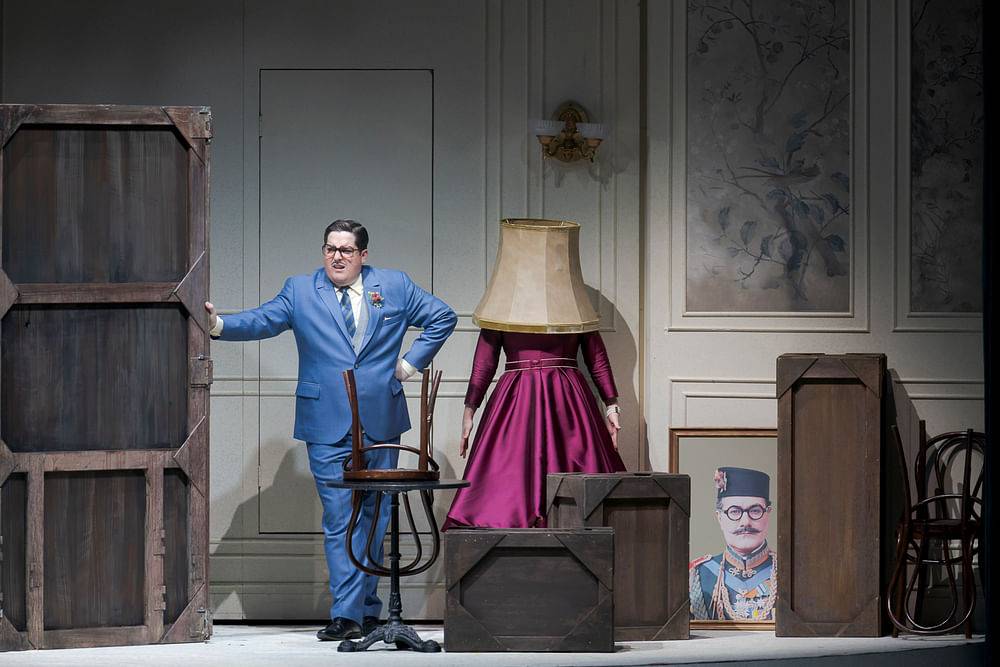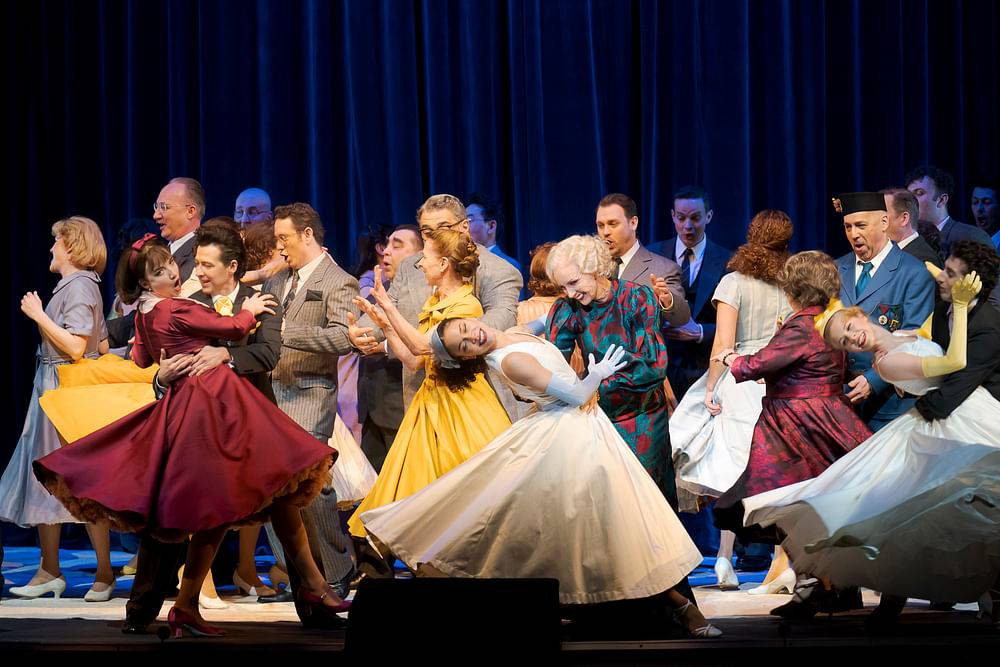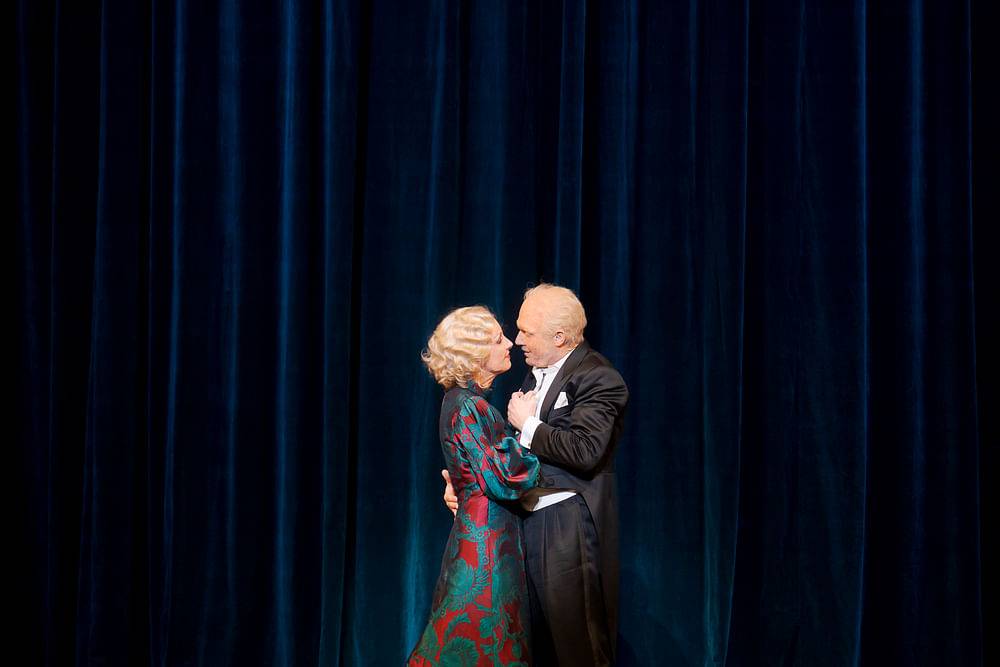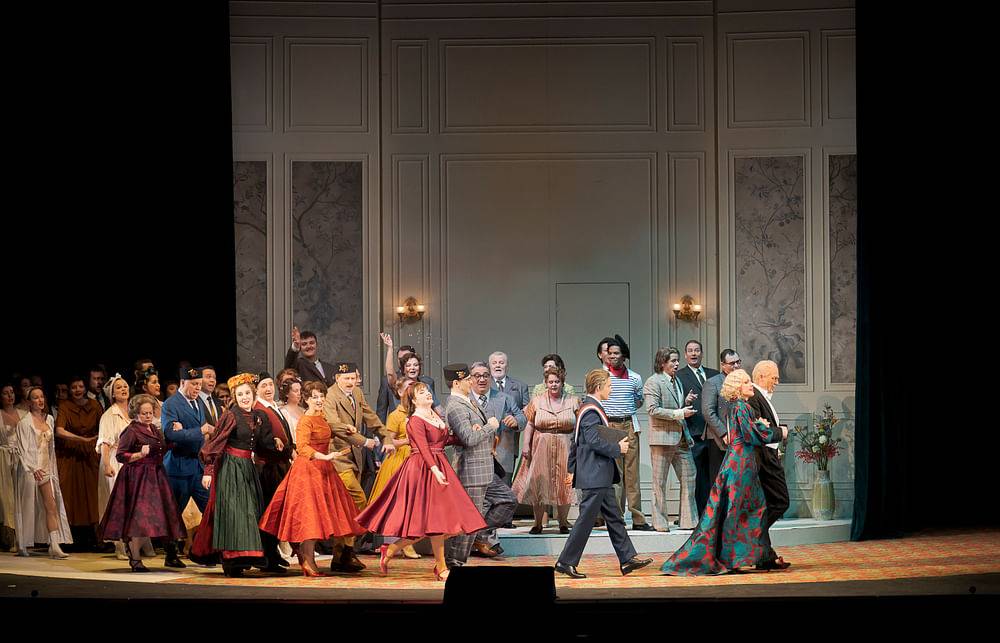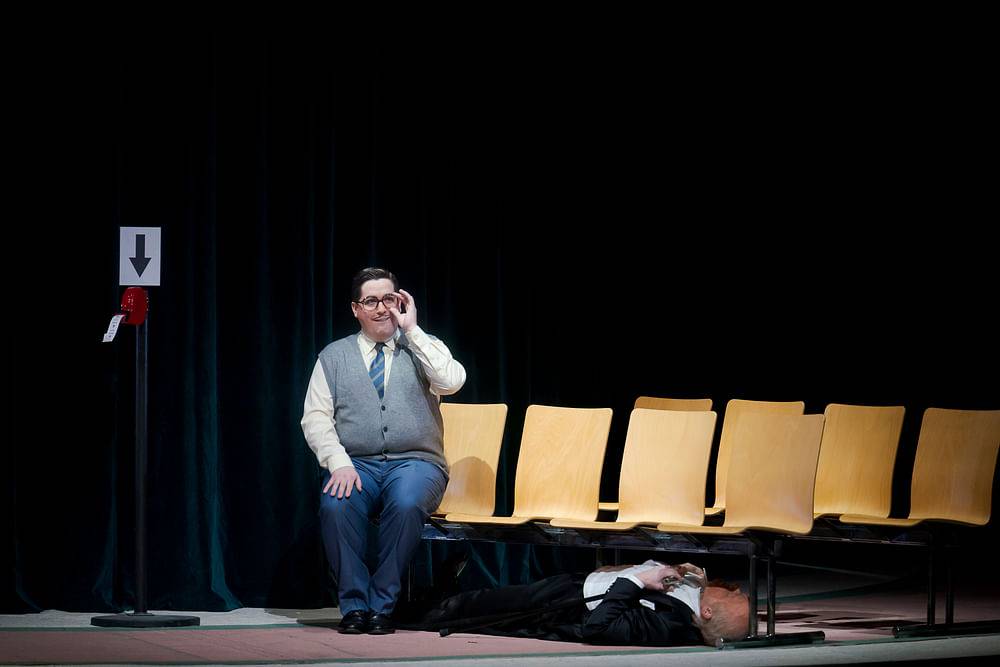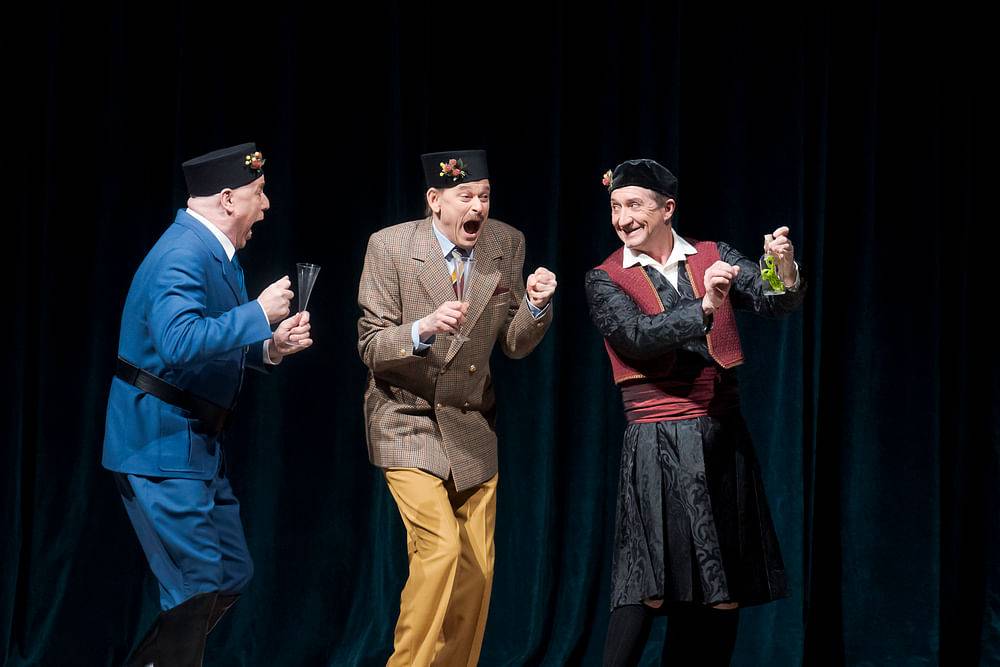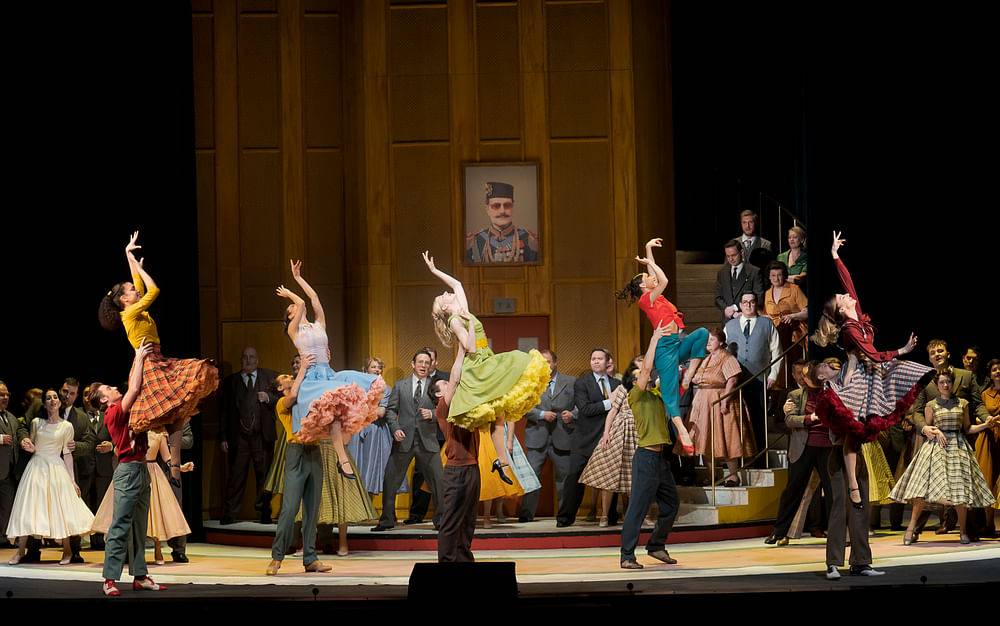Operette by Franz Lehár
Libretto by Victor Léon and Leo Stein based on the comedy "Der Gesandtschaftsattaché" by Henri Meilhac.
Dialogue version adapted for the Volksoper by Jakob Semotan.
Franz Lehár’s The Merry Widow is one of the most important and best-known operettas ever. In a new production by Mariame Clément, the piece returns to our repertoire and tells the story of a love that gets a second chance. Paris, turn of the century: metropolis of music, bohemia, world exhibitions, the can-can... A diplomatic delegation gathers in anxious conspiracy because the bankruptcy of the homeland seems inevitable. Baron and ambassador Mirko Zeta sees only one way to save the Slavic operetta state of Pontevedro from financial ruin: the millionaire widow Hanna Glawari, who has just arrived in Paris. One of his compatriots must marry her! And so begins the hunt for the most charming lifebuoy in operetta history: Hanna Glawari, who, however, finds herself not facing the described facts but rather an unexpected reunion with her past lover...
Act one
“You say, you love me,
But I fear, where the truth
Will be taught:
Your love is more sincere
For the beauty of my gold!” (Hanna)
In Pontevedro's embassy in Paris, Baron Mirko Zeta and his guests hold a celebration in honour of the birthday of Pontevedro’s sovereign – in spite of their native country’s empty treasury. Zeta, whose French spouse Valencienne is ardently courted by her compatriot Camille de Rosillon, has hatched out a plan to save his native country from bankruptcy: He invited the ultra-wealthy widow Hanna Glawari, an elegant Pontevedrian lady who has come into money through marriage, and plans to have his embassy attaché, Count Danilo Danilowitsch, an elderly lounge lizard, who permanently turns night into day at his favorite night club Maxim, to court Hanna. That way her fortune would stay in Pontevedro and would not be passed on to the Parisian dowry-hunters. When Njegus, specialist for “delicate affairs” at Pontevedro's embassy, finally manages to get the disheveled Danilo to the embassy, Hanna is already the center of male attention. Danilo is struck by lightning when he recognizes the love of his youth: Hanna. Back then they were denied marriage for her social status was not befitting his. Hanna pointedly remarks that she would be well worthy for his aristocratic family now, but Danilo assures her that he would not marry her exactly for that reason.
Valencienne lost her fan. On it are Camille's compromising words “I love you”. To bring the affair to an end, she demands of her admirer to marry Hanna. Meanwhile Danilo refuses to comply with Zeta's plan to marry the “Pontevedrian bail-out”. In order to keep the tiresome French suitors off Hanna, Danilo arranges a ladies' choice dance: Hanna asks Danilo for a dance, but he wants to sell it for 10.000 francs. All the other gentlemen lose their interest. The two squabblers allow themselves to be seduced into a quick dance …
Act two
“Oh, you accursed millions!“ (Danilo)
Hanna arranges a Pontevedrian get-together at her Paris domicile. The evening turns into a catalyst for the love turmoil and the battle of the sexes among the party guests. Hanna tries to win Danilo's heart, but he keeps avoiding her and sets off on a different mission assigned by Zeta: He needs to find out to which lady the fan with the inscription “I love you” belongs, in order to reveal who has an extramarital affair. Said woman, although already married, should then marry Camille. That way the most dangerous of all marriage candidates would be out of the way.
While searching for the married woman, Danilo learns a lot about Pontevedrian-French love affairs, which prompts him to chat with the other gentlemen about the supposed infidelity of their wives and the “study of women”. Only Camille still gives the romantic lover, but Valencienne wants to put a definitive end to the affair, desperately repeating her statement of faith: “I am a respectable woman.” And yet she follows Camille to a hidden and discreete “pavilion” for a farewell kiss …
When Zeta sees them through a viewing slit, the affair seems to blow up, but Njegus, at the very last moment, manages to swap Valencienne for Hanna through the back door. To everyone’s dismay, Hanna and Camille step out of the “pavilion”; what was intended as help for Valencienne takes on a life of its own and in the end Hanna feels compelled to announce her engagement with Camille.
Act three
“Oh, you lost millions!“ (Zeta)
In the basement of her villa, Hanna has had recreated Danilo’s favorite night club, the famous “Maxim’s”, where real “grisettes” – led by the ambassador's wife Valencienne – perform. A telegram informs Zeta that the sovereign has lost confidence in the Pontevedrian colony and is on his way to Paris. Since the threat of national bankruptcy is still looming, Danilo takes heart and appeals to Hanna not to marry Camille. As soon as the last French marriage candidate is out of the game, the Pontevedrian love and marriage affairs untangle ... All's well, that ends well.
Cast
- Conductor
- Ben Glassberg
- Stage direction
- Mariame Clément
- Set and costume design
- Julia Hansen
- Choreography
- Miles Hoare
- Lighting design
- Alex Brok
- Dialogfassung
- Jakob Semotan
- Choir director
- Roger Díaz-Cajamarca
- Baron Mirko Zeta, pontevedrinischer Gesandter in Paris
- Szymon Komasa
- Valencienne, seine Frau
- Hedwig Ritter
- Hanna Glawari
- Rebecca Nelsen
- Graf Danilo Danilowitsch, Gesandtschaftssekretär
- Daniel Schmutzhard
- Njegus, Kanzlist bei der pontevedrinischen Gesandtschaft
- Jakob Semotan
- Camille de Rosillon
- Aaron Casey Gould
- Vicomte Cascada
- Michael Havlicek
- Raoul de St. Brioche
- Robert Bartneck
- Bogdanowitsch, pontevedrinischer Konsul
- Georg Wacks
- Sylviane, seine Frau
- Elisabeth Schwarz
- Kromow, Gesandtschaftsrat
- Nicolaus Hagg
- Olga, seine Frau
- Sofia Vinnik
- Pritschitsch, Militärattaché
- Daniel Ohlenschläger
- Praskowia, seine Frau
- Brigitte Kren
- Lolo, Grisette
- Mirjam Sori Gogic
- Dodo, Grisette
- Renatka Kucharova
- Jou-Jou, Grisette
- Midori Dablander
- Frou-Frou, Grisette
- Christiane Costisella
- Clo-Clo, Grisette
- Heike Dörfler
- Margot, Grisette
- Angela Riefenthaler
Photos and Videos
For all those who use a screen reader, a description of the visual aspects of the performance (set design, costumes...) follows here instead of the photo gallery.

